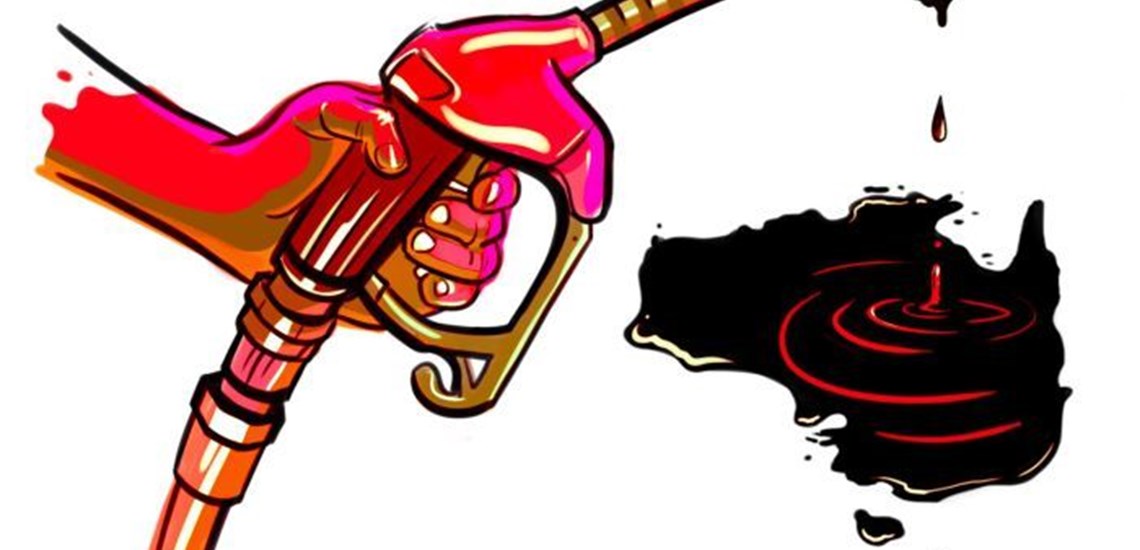A Gladstone, Queensland, oil refinery says it has found the solution to Australia‘s tyre waste and fuel security problems. Southern Oil Refineries general manager Ben Tabulo said the company had successfully conducted large-scale pilot tests on its biodiesel made from old tyres. “We’ve proven renewable diesel can work in Australia’s engines and does have the same efficiency on the road,” he said.
Southern Oil Anticipate a Future for Tyre Sourced Diesel, within 10 years
“The renewable diesel … has been refined from post-consumer waste, mainly mixed tyre crude oil and refined into 100 per cent drop-in diesel. Our laboratory has shown this diesel is indistinguishable from fossil diesel and will give all the performance that you expect from fossil diesel.
“Today we’ve put renewable diesel made from tyres, into this engine … it is a normal engine as you would find it trucks and boats, there is nothing special about it.”
The Government’s Australian Petroleum Statistics publication, issued in November 2018 said Australia’s stockholdings would amount to 18 days of diesel supply in the event of market failure. Professor Brown said the findings show that if Australia lost its overseas deliveries, diesel backups would be insufficient to meet demand. “If we can produce some fuel at home that is most definitely good for fuel security,” he said.
Mr Tabulo said all testing had confirmed that Southern Oil’s biodiesel had the potential to go commercial. “One passenger tyre will give you approximately two litres of diesel,” he said. “That’s your seven-kilogram tyre off your car, the mining tyres are obviously excessively bigger and they will give you much more diesel. It’s very believable that the process that’s proposed could produce the fuel that is suitable for regular diesel engine usage,” he said.
Queensland University of Technology (QUT) mechanical engineering Professor Richard Brown said Southern Oil’s decision to work with Scania was sensible as one of the largest diesel engine suppliers in the world. “They’ve got an engine manufacturer who’s on board with them and giving their approval,” he said. “You can make a fuel, but unless you have engine manufacturers approving it for use in their engines, nobody will want to buy your fuel.”
Mr Tabulo said the company was confident the biodiesel would create less emissions than fossil diesel. “What we don’t want to do is solve one problem while we create another,” he said. “Emissions off this machine will be tested and monitored both under constant mode and variable mode to at least meet the current standards for diesel emissions.”
Scania national manager Andre Arm said the new biodiesel was a game changer for sustainability. “I think sustainable fuel is the future and no one can deny that there is a push worldwide to have a look at where we’re going with our conventional fuel,” he said.
The company said they hope to have the biodiesel commercially available as soon as possible. “The engine will be run for about 12 to 18 months as we go through several testing stages from basic engine componentry, right up to acceleration and deceleration of the engine,” he said. Professor Brown said theoretically, it would be possible to have the fuel in production within two years. “From what I can see, they’ve got it to a pilot scale, they’ve made enough fuel to put in an engine,” he said. “Obviously if they want to start producing enough fuel for a whole fleet of engines, you’ve got to have a factory rather than just a small developmental facility. Building a factory takes about a year, getting all the approvals, getting it all refined, and getting it finalised, would take another year … they’re well down the track. But how long exactly that’s a hard one … I can believe it’s a matter of years, but it’s certainly less than 10 years.”




















